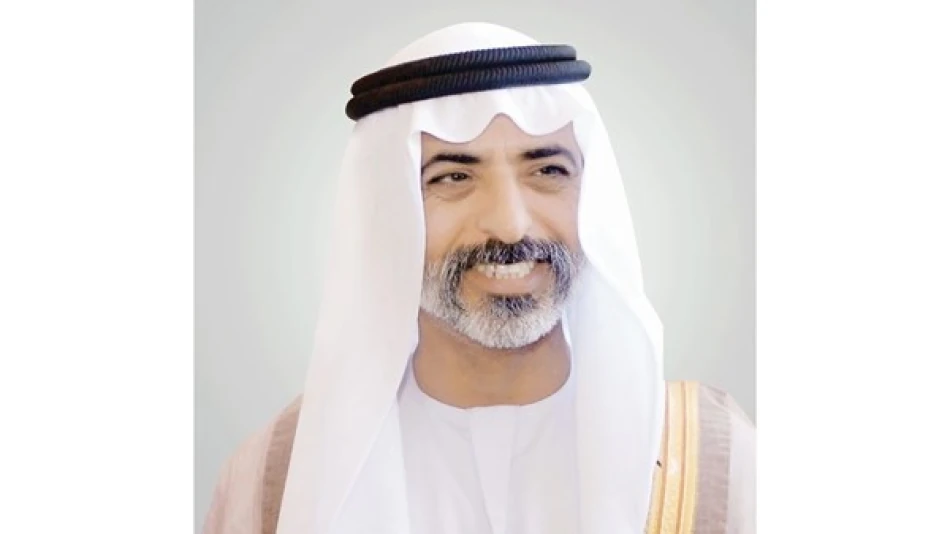
Emirati Women Shine Globally, Thanks to the Generosity of UAE's Mother
UAE's Women Empowerment Model Sets Global Standard as Nation Celebrates Emirati Women's Day
The UAE continues to position itself as a world leader in women's empowerment, with senior officials highlighting unprecedented achievements in gender equality during this year's Emirati Women's Day celebrations. The recognition comes as the country leverages women's participation as a cornerstone of its economic diversification strategy and soft power projection globally.
Strategic Leadership Behind Women's Advancement
Sheikh Nahyan bin Mubarak Al Nahyan, Minister of Tolerance and Coexistence, emphasized the pivotal role of Sheikha Fatima bint Mubarak, known as the "Mother of the Emirates," in transforming the UAE into a global benchmark for women's empowerment. Her five-decade commitment to advancing women's rights has created institutional frameworks that extend far beyond symbolic gestures.
The minister's tribute to President Sheikh Mohamed bin Zayed Al Nahyan underscores how the UAE's leadership views women's empowerment not as a social issue, but as an economic imperative. This approach has enabled Emirati women to occupy senior positions across government, business, and international organizations—a strategic advantage in an increasingly competitive global economy.
Economic Impact and Global Positioning
Competitive Advantage Through Inclusion
The UAE's women empowerment strategy represents more than progressive social policy—it's a calculated economic move. By maximizing human capital utilization, the Emirates has created a demographic dividend that supports its post-oil economic transition. This contrasts sharply with regional competitors who continue to underutilize half their population's potential.
The timing of these celebrations during the "Year of Community" signals the government's recognition that social cohesion and economic prosperity are interconnected. Emirati women's participation in decision-making processes has become a soft power asset, enhancing the UAE's international reputation and attracting foreign investment from companies prioritizing ESG criteria.
International Benchmarking
The UAE's approach mirrors successful models from Singapore and Nordic countries, where early investment in women's education and workforce participation generated long-term economic returns. However, the Emirates has achieved this transformation in a significantly shorter timeframe, suggesting more efficient policy implementation mechanisms.
Institutional Framework for Sustained Progress
The minister's emphasis on legislative achievements reveals a systematic approach to women's empowerment. Unlike countries where progress depends on political cycles, the UAE has embedded gender equality principles into its institutional DNA through constitutional protections and regulatory frameworks.
This institutional approach explains why Emirati women's advancement has accelerated rather than plateaued over time. The combination of top-down political support and bottom-up social acceptance has created a sustainable model that other nations increasingly study and attempt to replicate.
Strategic Implications for Regional Leadership
The UAE's women empowerment success story serves multiple strategic objectives. Domestically, it ensures maximum utilization of human resources for Vision 2071 goals. Regionally, it positions the Emirates as a progressive leader challenging traditional paradigms. Globally, it enhances the country's soft power and diplomatic influence.
As the UAE prepares for COP28 and continues expanding its international partnerships, the demonstrated success in women's empowerment provides credibility for its broader modernization narrative. This credibility translates into tangible benefits: enhanced diplomatic relationships, increased foreign investment, and stronger positioning in international organizations.
The celebration of Emirati Women's Day thus represents more than recognition—it's a strategic communication of the UAE's transformation from a traditional society to a modern, inclusive economy capable of competing globally while maintaining cultural authenticity.
Most Viewed News

 Layla Al Mansoori
Layla Al Mansoori






